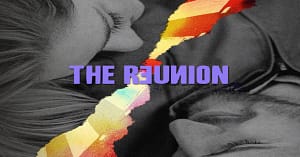Goodbye Blue Mondays: Humorous Toxic Masculinity in a Hunger Games World
3 min read“Goodbye Blue Mondays” may not encapsulate the themes and story with its title. It’s take on the Hunger Games “Lottery” setting mechanic makes one slightly nervous, in fact . In these first three episodes of six total, the only time we hear those three words are during the credits. The creator, Gregory Bayne, dropped episodes 1-3 today with the final three releasing weekly until its conclusion.
A Hunger Games Comedy?
The show’s premise of a lottery happening once a week for people to retire early sounds unrealistic for a modern society. Having the ability to fund such a thing weekly is a bit hard to swallow even in a far future science fiction. The setting of “Goodbye Blue Mondays” is similar to the world of Panem from the Hunger Game’s movies. Simply apply the same intensity found in over-the-top fashion choices to the tone and you’ve basically described the people in these first three episodes.
Instead of a dystopia where everything is bleak. Bayne and his co-director Logan Donovan replace it with satire about incels, misogynists and all around toxic masculinity. The subject matter may be bleak, but the tone is anything but.
A Secret Misogynist and Fall From Grace?
The story starts out with the main character, Elliot (voiced by Donovan), as he learns his co-worker, Jerry Dingle (voiced by Travis Swartz) has the winning ticket for the upcoming Global Early Retirement Lottery (GERL.). Elliot doesn’t believe it but becomes obsessed about whether he might be telling the truth.
The truth—according to Dingle—is that the lottery is a feminist plot to cut off men’s genitals, scramble their brains and eliminate men all together from the world. GERL is shrouded in mystery as nobody knows what happens to them upon winning. Some people, like Dingle’s idol Blade Johnson believe in the outlandish thing written above. The more level-headed people simply believe the winners are simply retired and living a life of luxury. The fact Elliot even considers that Dingle actually has the winning ticket could be his anti-Hunger Games moment later in the story. Where instead of volunteering as tribute being seen as sacrificial, the ticket theft he contemplates is more negatively charged. It could be the slippery slope that turns Elliot into a Dingle character. Pure speculation.
Elliot’s Hunger for Games (i.e. the Love Interest AKA Monica Levy)
This relatively short audio drama mini-series will make or break on the contents of its final three episodes. Will they make Elliot go complete Andrew Tate on Monica and say somethings he may or may not regret. It begs the question. Does giving voice to horrible ideas, even in acts of dissent against them, make the creators themselves a mouth piece for them? Given the summary of Goodbye Blue Mondays has the words: “A listless factory worker stops at nothing to ensure the reward goes to a more deserving citizen, namely himself, only to discover the prize is not exactly as advertised” makes me worry about the end.
7.5/10- Stars


